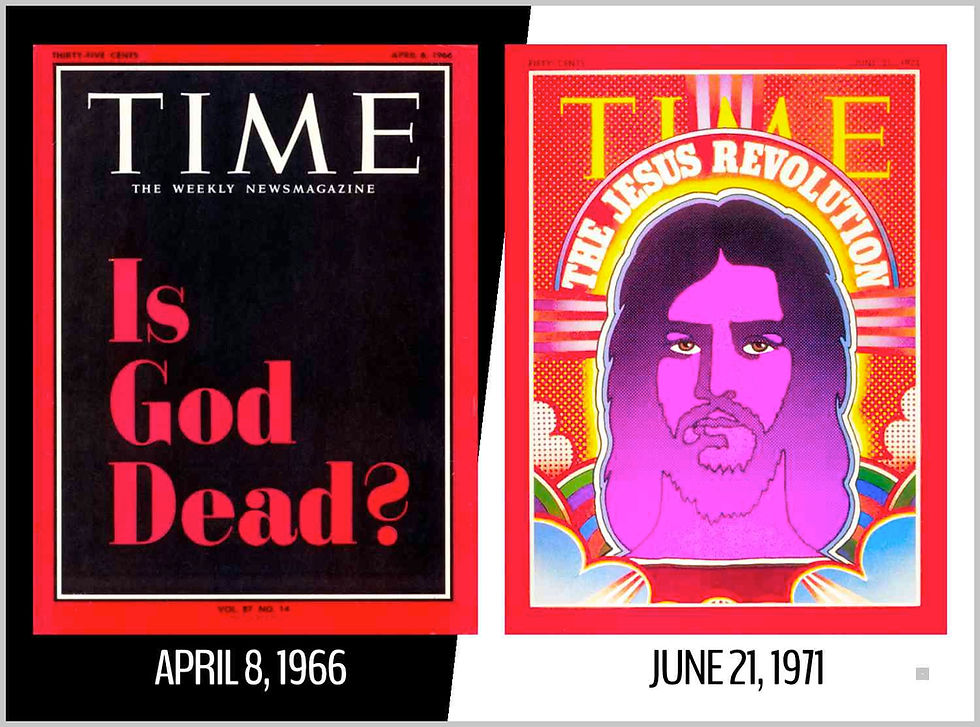God’s Big Idea
- Oct 3, 2025
- 3 min read

Imagine if God decided to enter our world to communicate with us about this idea of healing an extremely sickly world through an antibody called The Church.
How would He do that?
Suppose we wanted to communicate with a colony of ants in a giant anthill on the Serengeti.
It seems it would make the most sense to become an ant ourselves and communicate to them in ant-language and ant-movement they could relate to…otherwise our overwhelmingly powerful human bodies would do nothing but scare the daylights out of them.
In our universe, that’s called the Incarnation: Big God becoming a humble human being. Paul tried to help the early Church understand how powerful this Big Idea is: it’s the center of Christian theology. He describes Jesus and His purpose in a letter to the Colossian church:
The Son is the image of the invisible God, the firstborn over all creation. For by him all things were created: things in heaven and on earth, visible and invisible, whether thrones or powers or rulers or authorities; all things were created by him and for him. He is before all things, and in him all things hold together. And he is the head of the body, the church; he is the beginning and the firstborn from among the dead, so that in everything he might have the supremacy. For God was pleased to have all his fullness dwell in him, and through him to reconcile to himself all things, whether things on earth or things in heaven, by making peace through his blood, shed on the cross.
COLOSSIANS 1:15–20
Did you catch what He said in the middle? He’s going on and on about how big this God-Man Jesus is—Creator of all things, visible and invisible, the One who establishes power and authority. And then Paul points out that this organization—the Church—is directly connected to God.
Paul is establishing a big thought here. Not only is Jesus God, but He is also the Head—the strategic-thinking authoritative leader and brains—of a movement on earth called The Church, which is actually functioning as His Body. In other words, what Jesus wants to do on earth today is going to be done through the Church.
Ordinary people like you and me.
Now that’s a Big Idea. And that changes everything about how I see the Church. If we don’t get that revelation, we’ll tend to see this little thing that happens on the weekend as “going to church” and our little divisions and squabbles and Christian subculture as what the Church is all about. This is far bigger than denominations and factions and Protestants and Catholics and potlucks and politics.
So why do we take a big, God-sized idea and miniaturize it?
That’s why Paul later writes to a dysfunctionally divisive church in Corinth: “Don’t you know that you yourselves are God’s house and that His Spirit actually lives in you now?”
He’s so upset when he hears that they’re dragging each other into court that he angrily says, “Don’t you know you will actually judge the world in the end times? Don’t you know that you’ll judge angels and spiritual powers?—and you can’t settle little arguments among yourselves now? You’ve got to be kidding? You’re the Body of Christ on this planet!”
This revolutionary movement of surrendered and transformed servants is God’s Big Idea to usher in His rule and reign: the Kingdom of Heaven. To stand on the periphery and take potshots at the Church is hardly helpful; a critique is only effective as much as one is a lively part of her. The former atheist turned prayer-and-social-activist Dorothy Day once poignantly wrote:
“As to the Church, where else shall we go, except to the Bride of Christ, one flesh with Christ? Though she is a harlot at times, she is our Mother.”
Please. Let’s stop miniaturizing this Really Big Idea.
Dave Workman | The Elemental Group

Every healthy organization is marked by four essential traits: Integrity, Passion, Servanthood, and Imagination. With a practitioner perspective, author Dave Workman offers common sense guidance and tools to maximize leadership. Filled with insight, humor, and reflective exercises, this is an indispensable exploration of these four universal values. Check out Elemental Leaders: Four Essentials Every Leader Needs...and Every Church Must Have.



Comments